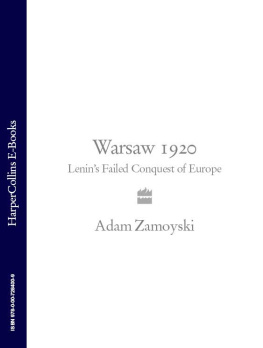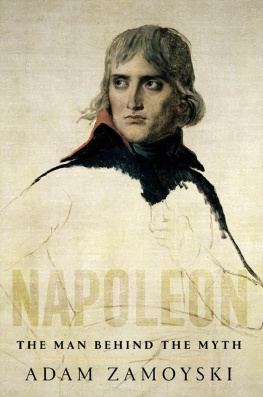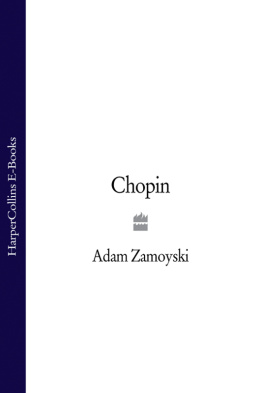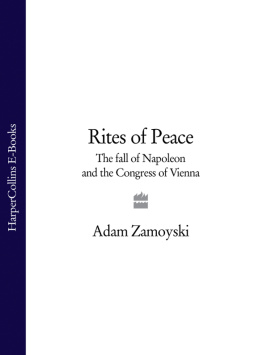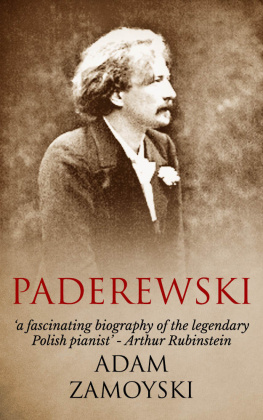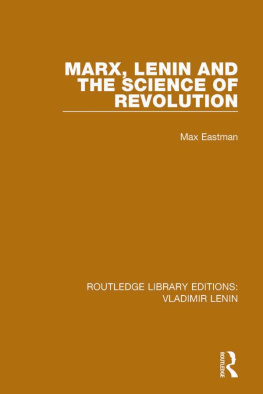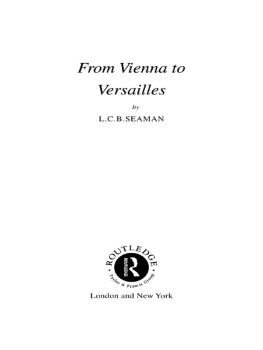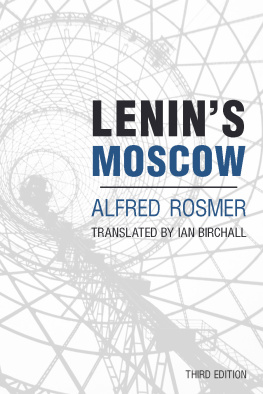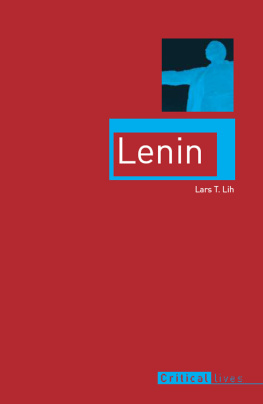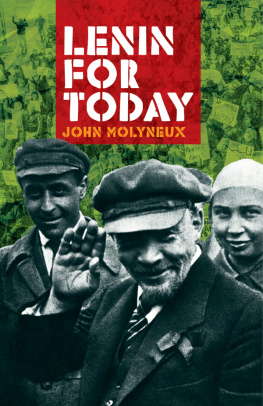Adam Zamoyski - Warsaw 1920: Lenin’s Failed Conquest of Europe
Here you can read online Adam Zamoyski - Warsaw 1920: Lenin’s Failed Conquest of Europe full text of the book (entire story) in english for free. Download pdf and epub, get meaning, cover and reviews about this ebook. year: 2008, publisher: HarperCollins UK, genre: Politics. Description of the work, (preface) as well as reviews are available. Best literature library LitArk.com created for fans of good reading and offers a wide selection of genres:
Romance novel
Science fiction
Adventure
Detective
Science
History
Home and family
Prose
Art
Politics
Computer
Non-fiction
Religion
Business
Children
Humor
Choose a favorite category and find really read worthwhile books. Enjoy immersion in the world of imagination, feel the emotions of the characters or learn something new for yourself, make an fascinating discovery.
- Book:Warsaw 1920: Lenin’s Failed Conquest of Europe
- Author:
- Publisher:HarperCollins UK
- Genre:
- Year:2008
- Rating:3 / 5
- Favourites:Add to favourites
- Your mark:
- 60
- 1
- 2
- 3
- 4
- 5
Warsaw 1920: Lenin’s Failed Conquest of Europe: summary, description and annotation
We offer to read an annotation, description, summary or preface (depends on what the author of the book "Warsaw 1920: Lenin’s Failed Conquest of Europe" wrote himself). If you haven't found the necessary information about the book — write in the comments, we will try to find it.
Warsaw 1920: Lenin’s Failed Conquest of Europe — read online for free the complete book (whole text) full work
Below is the text of the book, divided by pages. System saving the place of the last page read, allows you to conveniently read the book "Warsaw 1920: Lenin’s Failed Conquest of Europe" online for free, without having to search again every time where you left off. Put a bookmark, and you can go to the page where you finished reading at any time.
Font size:
Interval:
Bookmark:

Pilsudski reviewing volunteers setting off for the front. (Centralne Archiwum Wojskowe, Warsaw)
Kamenev with soldiers of the Red Army. (The David King Archive, London)
Russian infantry on parade. (The David King Archive, London)
Russian heavy artillery outside Warsaw, August 1920. (The David King Archive, London)
A colour party of Red cavalry, spring 1920. (The David King Archive, London)
The Red cavalrys secret weapon, the tachanka. (The David King Archive, London)
Polish field artillery in Pinsk, spring 1920. (Centralne Archiwum Wojskowe, Warsaw)
The Polish 16th Lancers marching through Rwne, March 1920. (Biblioteka Ksiazat Czartoryskich, Krakw)
Polish heavy artillery in Ukraine, May 1920. (Centralne Archiwum Wojskowe, Warsaw)
The Polish Air Forces Kosciuszko Squadron, made up of American volunteers. (The Polish Institute and Sikorski Museum, London) Polish armoured train. (Centralne Archiwum Wojskowe, Warsaw)
A Russian divisional radio transmitter. (The David King Archive, London)
Zeligowski. (Centralne Archiwum Wojskowe, Warsaw)
Yakir. (The David King Archive, London)
Uborevich. (The David King Archive, London)
Sosnkowski. (The Jzef Pilsudski Institute, London)
A Russian armoured car captured by the Poles in the Kiev offensive.
(Centralne Archiwum Wojskowe, Warsaw)
Smigly-Rydz taking the salute as Polish troops march into Kiev, 7 May 1920. (The Jzef Pilsudski Institute, London)
Smigly-Rydz greeting the Ukrainian leader Ataman Symon Petlura in Kiev. (Centralne Archiwum Wojskowe, Warsaw)
Recruits of the Ukrainian National Army parade before Petlura.
(Centralne Archiwum Wojskowe, Warsaw)
Lenin calling for volunteers to fight Poland, May 1920. (The David King Archive, London)
Tukhachevsky. (The David King Archive, London)
Szeptycki. (The Jzef Pilsudski Institute, London)
Stalin. (The David King Archive, London)
Yegorov. (The David King Archive, London)
Budionny and Voroshilov. (The David King Archive, London)
Gai. (The David King Archive, London)
Units of the Polish First Army in retreat, early August 1920. (The Jzef Pilsudski Institute, London)
The PolRevKom, Lenins government for Poland. (Centralne Archiwum Wojskowe, Warsaw)
Soldiers of Budionnys Konarmia, July 1920. (The David King Archive, London)
Officers of the French military mission to Poland. (Centralne Archiwum Wojskowe, Warsaw)
Haller. (The Jzef Pilsudski Institute, London)
Iwaszkiewicz. (Centralne Archiwum Wojskowe, Warsaw)
A detachment of the Womens Volunteer Legion, August 1920.
(Centralne Archiwum Wojskowe, Warsaw)
Sikorski. (Centralne Archiwum Wojskowe, Warsaw)
Polish machine-gun emplacement outside Warsaw, August 1920.
(Centralne Archiwum Wojskowe, Warsaw)
Polish tanks at Minsk Mazowiecki, August 1920. (Centralne Archiwum Wojskowe, Warsaw)
Polish infantry advancing outside Warsaw. (Centralne Archiwum Wojskowe, Warsaw)
Pilsudski. (Centralne Archiwum Wojskowe, Warsaw)
Men of Gais KonKorpus being disarmed by German lancers.
(Centralne Archiwum Wojskowe, Warsaw)
It may come as something of a surprise to most people that a battle as decisive as Marathon or Waterloo took place in Europe between the end of the First World War in 1918 and the outbreak of the Second in 1939. Dramatic and fateful as they were, the events that took place at the gates of Warsaw in August 1920 have sunk into oblivion.
This is the more surprising as they had a profound effect on the politics of the 1920s and 1930s, on the course of the Second World War, and on the peace settlement of 1945, as well as a lasting one on attitudes throughout Europe figures such as Stalin, Churchill and De Gaulle were personally involved, while others such as Mussolini, Franco and Hitler took careful note.
The reasons for this eclipse are not hard to find. One is that while the battle did indeed alter the course of history, it did so by preventing something from taking place rather than by reversing it; this meant that it had no palpable impact on anyone not directly involved. Another is that historians of the time were mostly preoccupied with other themes, such as composing triumphalist accounts of the Great War from their own national standpoint. If they mentioned the battle of Warsaw at all, they tended to follow the lead of Soviet historians, who, not wishing to accept that their country had lost a war, treated it as part of the Russian Civil War, which the Soviets had won. Finally, the Second World War reversed the effect of the 1920 contest, seemingly rendering it irrelevant in the greater scheme of things. A negative view of Eastern Europe and the wholesale acceptance of socialist orthodoxies by Western historians in the decades following it did the rest.
This little book does not pretend to fill the resulting void. All it can aspire to is to provide an outline of the events, and specialists will find my generalisations wanting. Since the political and diplomatic background has been extensively covered by others (see Further Reading, page 149), I have concentrated on the military operations, and in particular on providing a synthesis accessible to the general reader and a succinct overview of what happened and how. This necessarily excludes dozens of minor actions and ignores the part played by many lesser actors, some of them of crucial importance. Nor can it give anything but a hint of the horrors and the heroism involved, or of the sense, which comes through all personal accounts and contemporary documents, that this was a crisis of European civilization.
I was fortunate enough to take an interest in these events some years ago, when many participants and even a few key players were still alive. There was something both exciting and unreal about sitting in a seedy London flat or a clapboard house somewhere in the great expanses of American suburbia, talking to someone who had stared death in the face at the end of a lance or seen the glint of Trotskys spectacles. It was also deeply rewarding, as it helped me to bridge the gulf between how events appear from documents and how they are experienced on the ground. Sadly, it was not then possible to talk to participants on the Soviet side, which would have added a remarkable perspective.
In spite, or perhaps because, of its contentious nature, the Polish-Soviet conflict of 191921 is extremely well covered in Polish and Russian, and there has never been any shortage of written sources. All of the essential operational documents were accessible, either in print or in archives, remarkably early on, and little has emerged in the past two decades to shed the kind of new light that would prompt a reinterpretation of the events. And although the numerous studies produced in Poland and Russia between the wars are rarely free of bias, they do contain a wealth of solid information. Perhaps surprisingly in the circumstances, it is the even more numerous accounts and studies by participants that provide some of the most interesting material. Although they tend to be written from a partisan and often blinkered position, an intelligent reading that takes this into account can yield rich pickings.
As the participants and witnesses I was able to interview are no longer with us, I would like in the first place to thank them, and particularly the late Aleksander Praglowski, Kornel Krzeczunowicz, Wladyslaw Anders and Adam Minkiewicz. I am also indebted to Stanislaw Bieganski of the Jzef Pilsudski Institute and Waclaw Milewski of the Sikorski Institute in London; to Boguslaw Winid, to Dr Andrzej Czeslaw Zak of the Central Army Archive and Dr Grzegorz Nowik of the Army Centre for Historical Studies in Warsaw, to Professor Andrzej Nowak, Bogdan Gancarz, and to my friend Norman Davies. As always, Shervie Price anticipated the queries of the standard reader.
Font size:
Interval:
Bookmark:
Similar books «Warsaw 1920: Lenin’s Failed Conquest of Europe»
Look at similar books to Warsaw 1920: Lenin’s Failed Conquest of Europe. We have selected literature similar in name and meaning in the hope of providing readers with more options to find new, interesting, not yet read works.
Discussion, reviews of the book Warsaw 1920: Lenin’s Failed Conquest of Europe and just readers' own opinions. Leave your comments, write what you think about the work, its meaning or the main characters. Specify what exactly you liked and what you didn't like, and why you think so.

